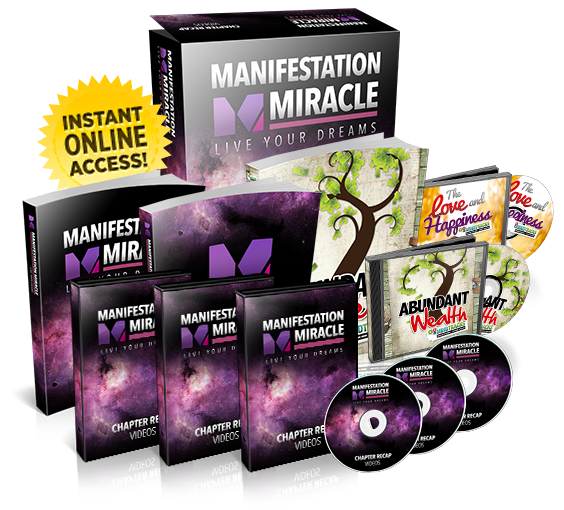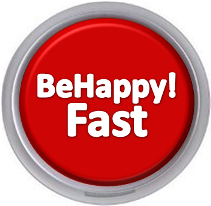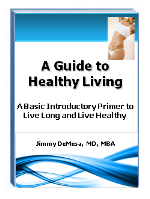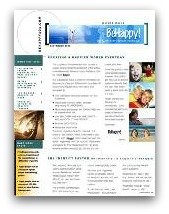Can Money Buy Happiness?
|
The question has been asked over and over again – can money buy happiness? And many people are quick to say that it doesn’t. Why is this even a question? Is there really any one thing in life that brings, buys, creates, guarantees, or leads to true and complete happiness? |
 |
|
Here’s a hint … NO!
Does success by itself bring happiness? Do relationships by themselves ensure happiness? Does good health by itself guarantee happiness? Does contribution on its own create happiness? Does the perfect job make someone totally happy? Does peace-of-mind by itself make someone happy? Does spirituality or religious beliefs assure happiness? The answer to each of these questions is ‘no’!! |
Why, then, does everyone ask whether money “buys” happiness?
And why would it even be expected that money alone could lead to a completely happy life?
All of the life circumstances and issues above (success, relationships, your job, etc.) can be partial contributors (or detractors) of happiness, largely depending on your own personal Definition of Happiness (which is different for everyone).
And, if any of these "life situations" are not a high priority towards that definition for you, it could have absolutely no effect on your happiness, one way or the other (including money).
Find out your personal Definition of Happiness (and get two free ebooks) by clicking on the "Get Instant Access" button below, then keep reading to find out whether money can buy happiness.
Regardless of your Definition of Happiness, none of these things are the “end-all-be-all” for happiness. Nothing alone can create a completely happy life. It is a complicated and multi-faceted issue. The bottom line is that all of them can help increase happiness to some degree – perhaps even to a large degree - again, depending on what happiness means to you personally.
So why are people so intent on singling out money as the thing that “does not buy happiness”? It has certainly become a cliché.
It’s very common to hear people say, for example, “I know a lot of very rich people who are not at all happy and I have seen some of the poorest people in the world, and they are very happy”.
Well I ask, so what? You can say that about any of the above situations. Try it.
It is commonplace for people who are in very good physical health to be miserable. There are many, many people who are in a great relationship, but are not really happy in their lives. Millions of people have great jobs, but are still unhappy and unfulfilled overall. And, studies show that only 25% of people who classify themselves as “religious” consider themselves “very happy”. It goes on and on.
And, just as important, the opposite is also true. Research has also shown that very sick people – even those with terminal illnesses or debilitating injuries – can be very happy and fulfilled. Countless people with boring, unfulfilling jobs are very happy and grateful in their lives. And yes, believe it or not, there are many, many “poor” people who are not at all happy and lots of rich people who are very happy (but nobody talks about that).
In fact, research shows that money does, in fact, “buy” happiness, since people at the poverty level are generally found to be less happy than people who are wealthy. Also, the wealthiest countries in the world are consistently at the top of the list of “the world’s happiest countries” (Norway, for example, is ranked as the #1 happiest country on earth – and they also have the highest per capita income in the world). Is this coincidental?
It goes on. Researchers have even found a specific annual income which seems to relate to a happier life, and that’s $75,000. So that’s proof that money and happiness are at least partly related. And, as income increases, a higher and higher percentage of people consider themselves "very happy", but, as would be expected, it is not a linear relationship. In other words, if you earn $150,000 (twice that $75,000 figure), you wouldn’t necessarily expect to be twice as happy as if you made $75,000 (although it is possible – especially if money, wealth, and a certain income level are of high importance in your Definition of Happiness). Taking it further, if you earn millions, you would not necessarily expect to be many times happier than if you earn $75,000. That’s just common sense. But that’s what everyone seems to assume. And, again, it’s still possible.
The bottom line, to say it again, is that NO ONE THING in life buys, brings, or guarantees true and complete happiness.
Money won’t.
Relationships won’t.
Religion won’t.
Nothing will. Like everything else in life, money is just one component to potential happiness, not the only factor to a totally happy life. There are many other factors.
And, the people who single out money as the one issue that “does not buy happiness”, in my opinion, are people who either:
- Don’t have much money and probably don’t expect to ever have much money, and are trying to justify their circumstances
- Have a limiting belief that somehow money is bad or evil, and creates greed and corruption
- Do not have money and/or wealth as part of their personal Definition of Happiness
- Are already wealthy and, for other reasons, are not completely happy or just don’t know what it’s like to not have money (or have forgotten what it’s like)
So, what’s the answer? Or, more appropriately, what is the better question to ask?
The question to ask that’s better than “does money buy happiness?” is “how can we lead the happiest possible life?”
That's what this website is all about. So use it daily to...
BeHappy! my friends
PLEASE CONSIDER...
If the information on this site helps you and you'd like to make a donation to BeHappy101.com (to help make others happy), please click on the button below to make a contribution. The amount you donate is entirely up to you. A portion will used to contribute to the happiness of others and is greatly appreciated. [WHY DONATE?] |










 I'm Jimmy, the founder and creator of this site and the whole BeHappy! system. My life's purpose is to be a positive, creative force for health and happiness and through this website, my books, coaching, and happiness-building programs, I intend to help as many people as possible live their happiest possible lives.
I'm Jimmy, the founder and creator of this site and the whole BeHappy! system. My life's purpose is to be a positive, creative force for health and happiness and through this website, my books, coaching, and happiness-building programs, I intend to help as many people as possible live their happiest possible lives.